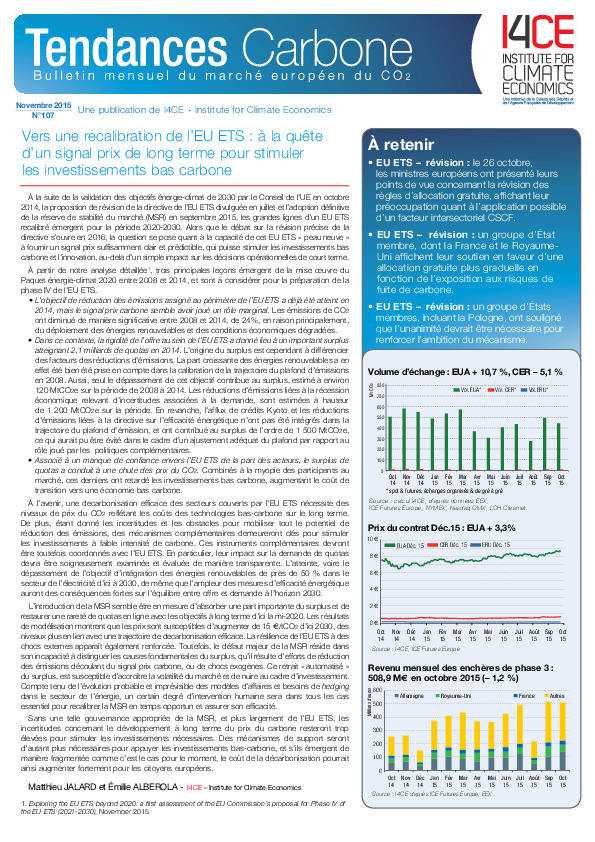Recalibrating the EU ETS: in search of a long term price signal to drive investments
By Matthieu Jalard and Emilie Alberola
With the endorsement of energy and climate targets by the EU Council in October 2014, the proposal for a revised EU Emissions Trading Scheme (EU ETS) directive disclosed in July and the enforcement of the Market Stability Reserve (MSR) in September2015, a recalibrated EU ETS is emerging for the 2020 to 2030 period. While the debate will be unfolding in 2016 around the final EU ETS directive, the question arises whether the EU ETS will be able to convey a long term price signal to 2030 which could drive investments and innovations, beyond beyond merely impacting short term operational decisions.
Based on our detailed analysis, three main lessons from the first half of the Energy and Climate framework, from 2008 to 2014 have to be considered for designing the Phase IV of the EU ETS.
- The 2020 EU ETS emissions reduction target has already been overachieved, but the instrument seems to have played a limited role.
- In the context of an inflexible supply, a large surplus has been building-up, amounting to 2.1 billion allowances in 2014.
- Without a long-term confidence in the scheme, the surplus has undermined the cost-effectiveness of the EU ETS.
Going forward, achieving a cost-effective decarbonisation of EU ETS sectors requires the carbon price pathway to reflect the abatement cost of the necessary low carbon technologies in the long run. In addition, given the wide uncertainties and barriers to mobilize all abatement potential, complementary mechanisms will remain a key support to drive low carbon and capital intensive investments in the power sector. However, these energy and climate complementary policies should be better coordinated with the EU ETS.
The introduction of the MSR will help absorb this surplus by mid-2020, and increase resillience to external shocks spurred by economic circonstances and complementary policies. However, without an appropriate governance of the MSR and more broadly the EU ETS, the uncertainties concerning the long term carbon price development will remain too high to drive investments, further encouraging fragmented schemes for their necessary promotion. In the end, the decarbonisation cost could increase for European citizens.
